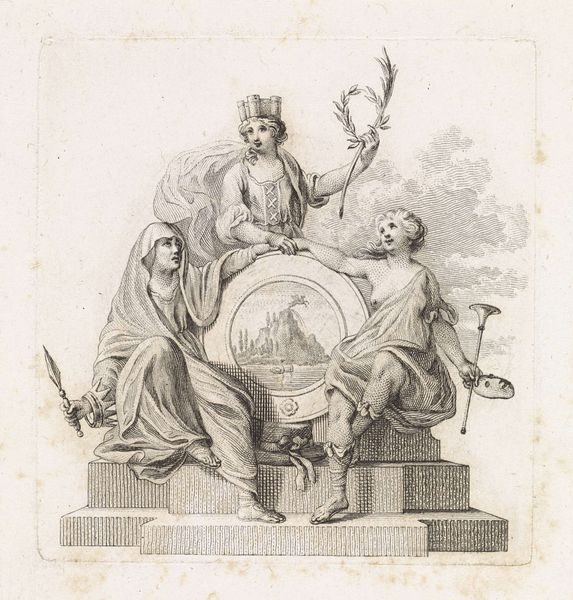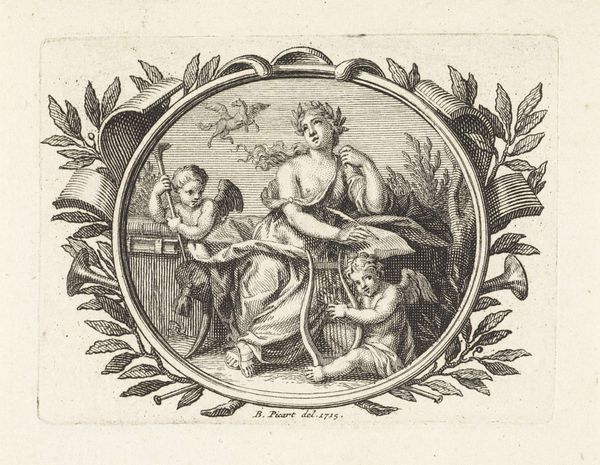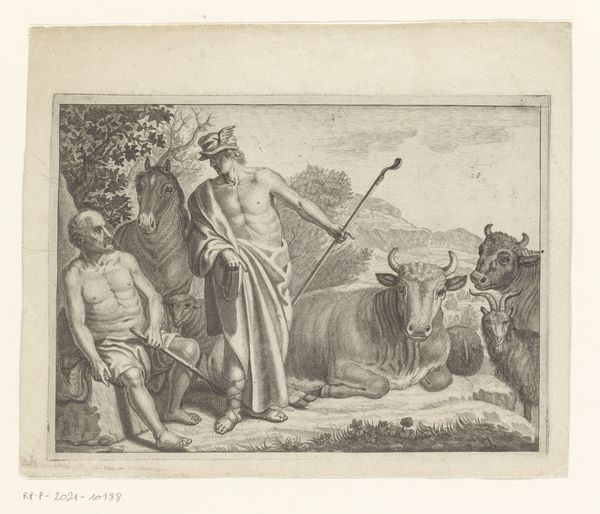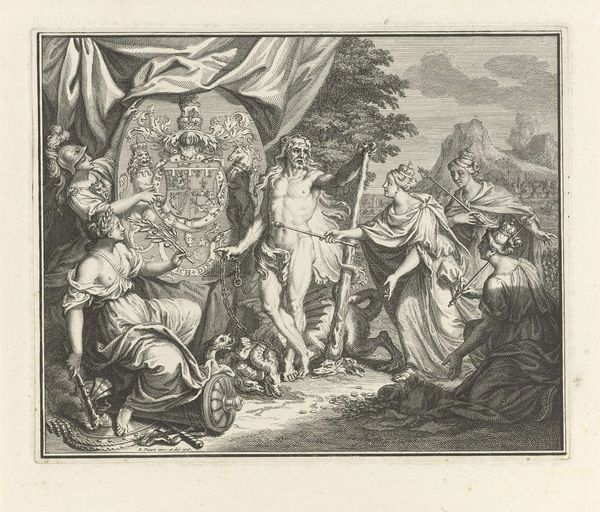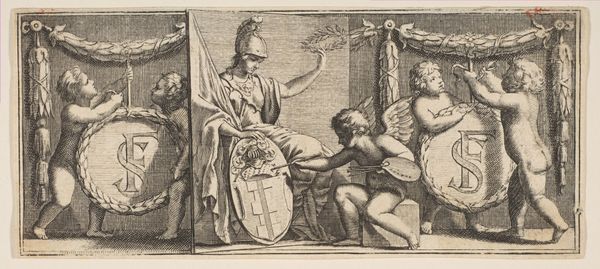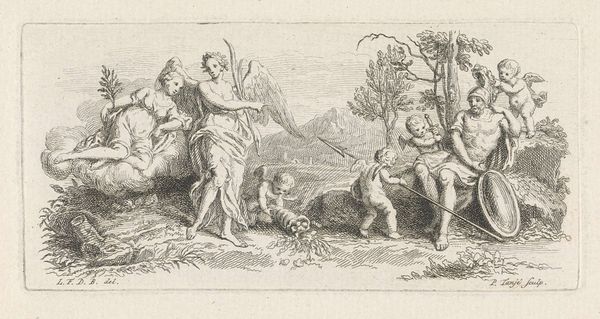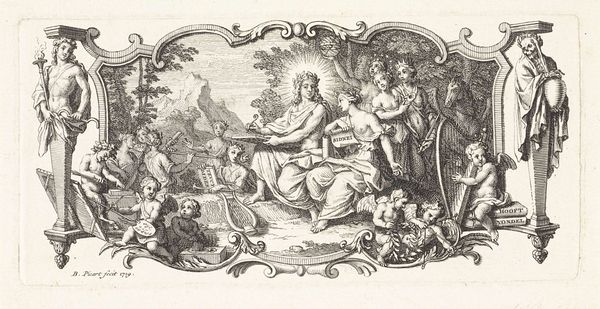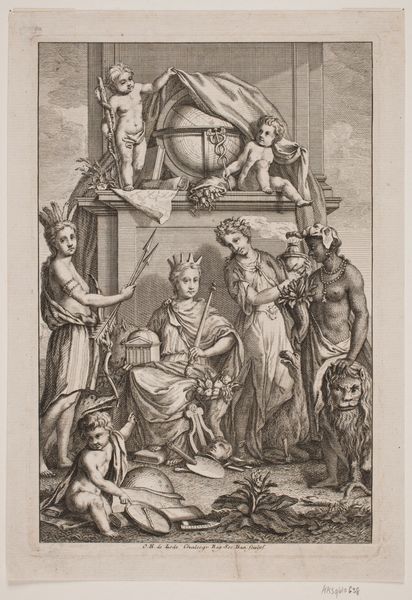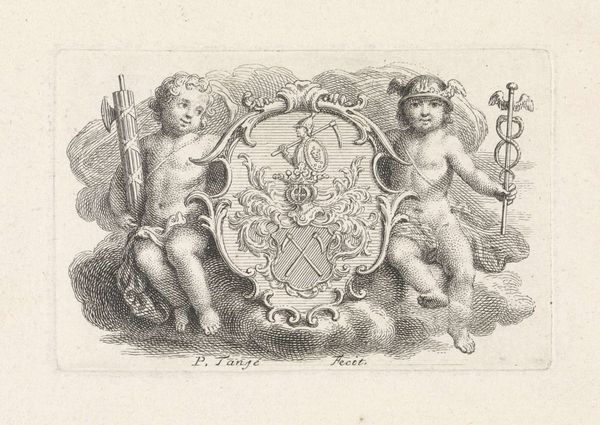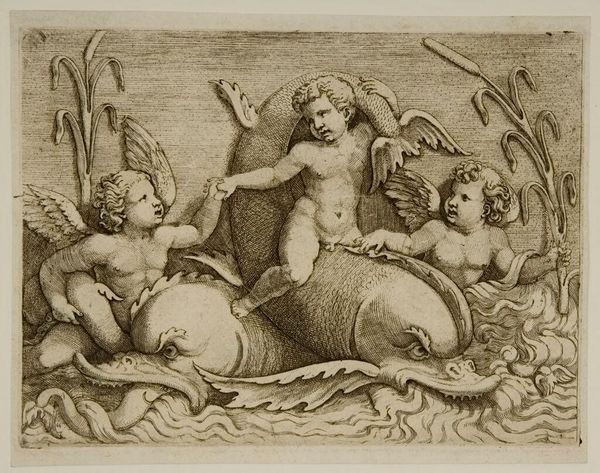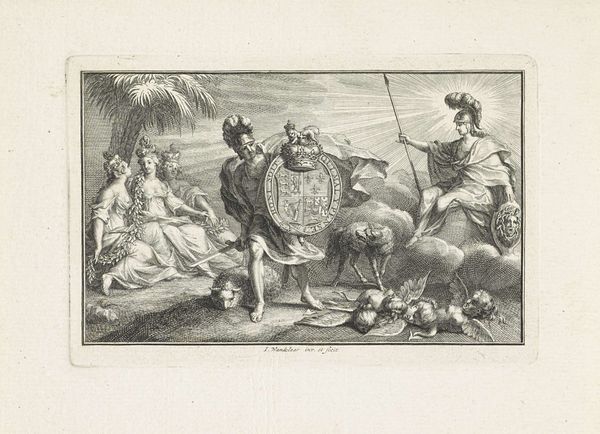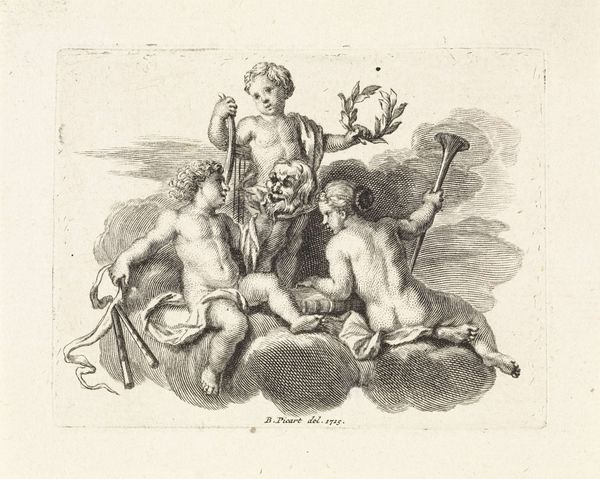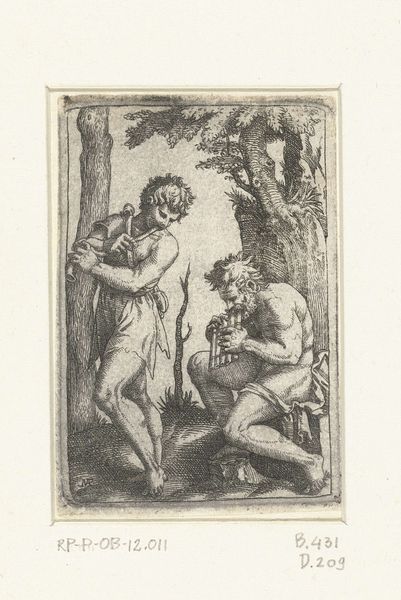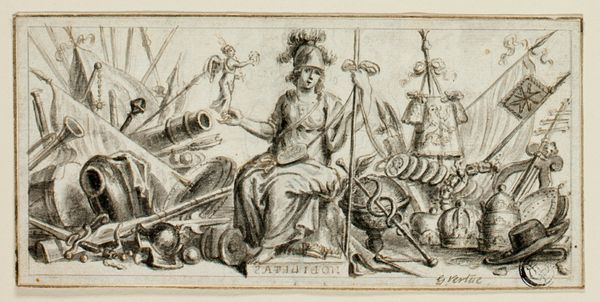
print, engraving
#
portrait
#
allegory
#
baroque
# print
#
pen sketch
#
old engraving style
#
figuration
#
line
#
history-painting
#
engraving
Dimensions: height 57 mm, width 72 mm
Copyright: Rijks Museum: Open Domain
This "Vignet met wapenschild met drie zwaarden" was made by Pieter Tanjé in the 18th century using engraving, a printmaking process that involves incising lines onto a metal plate, inking the plate, and then pressing it onto paper. Engraving demands a deep understanding of materials and tools, reflecting a tradition of skilled craftsmanship. The fine lines and intricate details speak to the artist's mastery over the burin, the tool used to carve into the metal. But the image itself speaks to the social context of its creation. A coat of arms, supported by classical figures and exoticized representations of indigenous people, symbolizes power and authority. The presence of weaponry underscores themes of conquest and control, hinting at the political and economic forces at play during the Dutch Golden Age, when trade and colonialism shaped artistic production. By looking closely at the materials and techniques used, we can understand how craftsmanship and design were interwoven with social and political narratives.
Comments
No comments
Be the first to comment and join the conversation on the ultimate creative platform.
